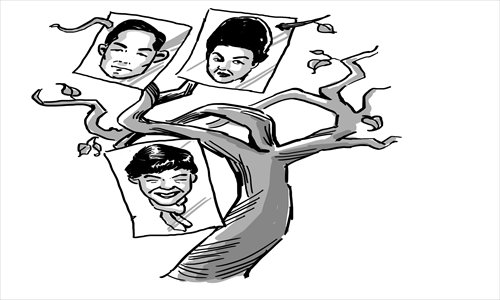대외활동
[Global Times 2012. 12. 25] Pedigree politicians see tough path ahead
2013.02.04 65203

The recent election results in South Korea and Japan clearly showed that both populations have chosen leaderships symbolizing stability and authority over those embodying change and reform.
However, in external relations, the new leaders, responding to a growing nationalistic penchant, could pursue a more independent diplomacy free from the influences of their traditional ally, the US, taking East Asia's regional security to a new level of uncertainty.
President-elect Park Geun-hye of South Korea is the daughter of former president Park Chung-hee, while Shinzo Abe is the grandson of former prime minister Nobusuke Kishi.
Are voters in South Korea and Japan nostalgic for the old days marked by leadership and discipline? Or are they disappointed with reform-oriented leaders who did not deliver what they promised in a vicious cycle of trial and error?
Princelings are prone to be self-righteous people and Park and Abe are no exception. In spite of his disgraceful legacy as an assassinated dictator, Park's father was synonymous with South Korea's economic modernization.
Abe's grandfather was a key figure in the early years of the so-called 1955 System, which started its life with the formation of the Liberal Democratic Party through the merger of the Japan Democratic Party and Liberal Party, a combination which dominated Japanese politics for more than half a century.
To Park and Abe, the process of nation-building and modernization in South Korea and Japan was not just a state affair, but a family business.
In this way, family ties are crucial in politics, but the offsprings are not just the cloned leaders of the past, since they face new challenges originating from the lapse of time and generational shift.
As part of their campaign strategies, the two future leaders promised the once unthinkable.
Park, in spite of her trademark, pro-business credentials, promised a huge government spending program on social welfare and improved relations with North Korea, while Abe vowed to revitalize his country by introducing an unlimited quantitative easing and revising the pacifist Peace Constitution to allow Japan a proper military.
To Park, any promised boost in welfare spending will cause a huge dent in state budgets, with the South Korean economy having grown only 0.1 percent in the third quarter from the second quarter of this year, affected by the lingering eurozone crisis and global economic slowdown.
In a departure from President Lee Myung-bak's hardline stance against North Korea, Park promised to implement both robust deterrence and multifaceted dialogue.
She even told the press that she was willing to meet the new North Korean leader Kim Jong-un to produce tangible outcomes for the future of the Korean Peninsula.
Abe also feels the need to protect Japan's far-flung territories especially against the newly resurgent China, given that the recent territorial disputes over the Diaoyu Islands have become the biggest obstacle to bilateral relations.
However, an increase in defense spending in the middle of the Japanese version of the "fiscal cliff" will not come soon. In the third quarter of this year, Japan's economy contracted by 3.5 percent, the most since the earthquake and tsunami in early 2011.
Reminiscent of North Korea's slogan to build "a strong and prosperous nation," Abe voiced the same phrase as a prelude to his future policy orientations conducive to taking a tougher line in its territorial disputes with China and South Korea.
Furthermore, Abe wants to nullify the 1993 government statement apologizing to women forced to serve as sex slaves at wartime military brothels and the 1995 statement by then-prime minister Tomiichi Murayama, apologizing for suffering caused by Japan's wartime aggression. Abe believes Japan has already apologized too much for its wartime past.
Abe might refrain from directly offending Japan's neighbors as he also vowed to improve relations with China and South Korea, given that former prime minister Junichiro Koizumi's visit to the Yasukuni Shrine strained relations with China for several years.
In sum, the mixture of the return of pedigree politicians and the resurgence of a nationalistic bent penchant with conflicting territorial claims could spell disaster for peace and security in Northeast Asia.
However, the region has enjoyed unrivalled peace and prosperity for the last several decades by preventing political and diplomatic clashes from spilling over onto military and economic fronts. Given their similarity in pedigree, the leaders might invent their own rules of engagement befitting the 21st century political culture and values in East Asia.
The author is a professor at the Asiatic Research Institute of Korea University. opinion@globaltimes.com.cn
(원본 링크: http://www.globaltimes.cn/content/752240.shtml)





